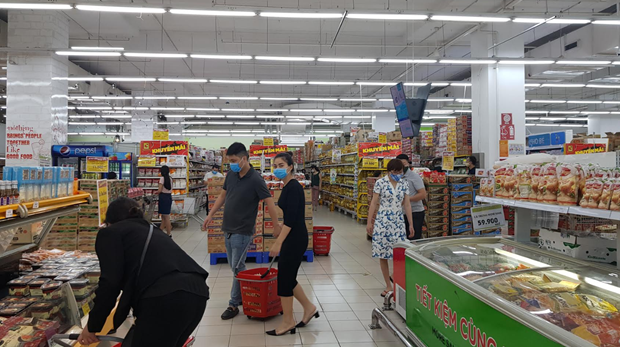(13th Congress) - Although the inflation in February recorded the highest increase in the past 8 years, the average inflation in 2021 will remain stable at 3%.

Photo for illustration. (Source: VNA)
That is the statement of HSBC’s economic research group in the face of concerns about the risks of increasing inflation as the economy recovers, HSBC says in a note.
Vietnam's consumer price index (CPI) shot up by 1.52% month-on-month in Feb. Analysts attributed the hike to increased food prices and transport costs during the Lunar New Year (Tet) holidays and the surge in power tariffs as Vietnam Electricity (EVN) ended its electricity subsidy in January.
Meanwhile, rising food prices and higher transportation costs also contribute to inflation.
According to HSBC, fluctuation in electricity prices may be a one-off administrative adjustment. Food prices and transportation costs are factors that need to be closely watched as they have a large proportion in the consumer price index basket, at 34% and 10%, respectively.
HSBC experts are also concerned that inflation would see upside pressure from higher transport costs (forecasting a 34% increase in Brent crude oil prices to 56 USD per barrel in 2021).
Domestic demand will improve in 2021, but HSBC believes that labor market stagnation will limit inflation on the demand side.
According to HSBC, Vietnam is one of the few economies with positive growth in 2020, so inflation from domestic demand was maintained. Prices in commodity groups such as home appliances, education and clothing increased steadily, but at a slower rate in 2020./.
BTA